
 call us : +8613866722531
call us : +8613866722531
 send a message : pweiping@techemi.com
send a message : pweiping@techemi.com
 call us : +8613866722531
call us : +8613866722531
 send a message : pweiping@techemi.com
send a message : pweiping@techemi.com
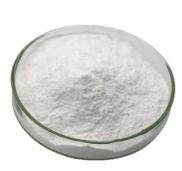
Name: Sodium bicarbonate CAS No.: 144-55-8 Appearance: White powder or opaque monoclinic system fine crystals Molecular formula: CHNaO3 Molecular Weight: 84.01 Melting point:>300 °C(lit.) PACKAGE:25KG/BAG
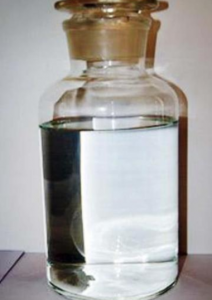
Name: Dichroromethylvinylsilane CAS number: 124-70-9 Molecular formula: C3H6Cl2Si Molecular weight: 141.07 EINECS number: 204-710-3 Mol file: 124-70-9.mol
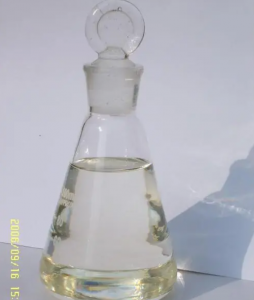
Name: Vinyltrimethylsilane CAS number: 754-05-2 Molecular formula: C5H12Si Molecular weight: 100.23 EINECS number: 212-042-9 Mol file: 754-05-2.mol
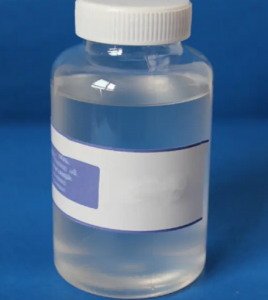
Name: Ethoxydimethylvinylsilane CAS number: 5356-83-2 Molecular formula: C6H14OSi Molecular weight: 130.26 EINECS number: 226-341-7 Mol file: 5356-83-2.mol
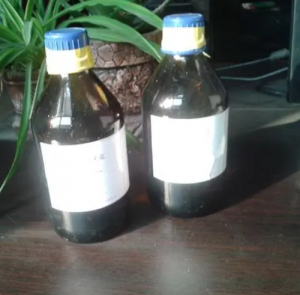
Name: CHLORODIMETHYLPINYLSILANE CAS number: 1719-58-0 Molecular formula: C4H9ClSi Molecular weight: 120.65 EINECS number: 217-007-1 Mol file: 1719-58-0.mol
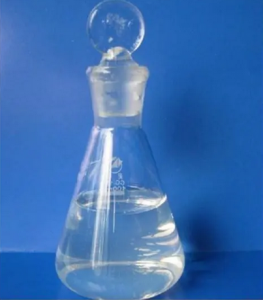
Name: 1,1,3,3-TETRAMETHYL-1,3-DIVINYLDISILAZANE CAS number: 7691-02-3 Molecular formula: C8H19NSi2 Molecular weight: 185.41 EINECS number: 231-701-1 Mol file: 7691-02-3.mol

Welcome to 138th China Import and Export Fair Dear Sir or Madam, The 138th Canton Fair is scheduled to open on October 15th, featuring continuous optimization of exhibition structure, various premium ...
History
Nisin is also known as Nisin peptide.
In 1947, A.T.R.Mattick prepared this polypeptide from the fermentation of Streptococcus lactis and named it Nisin;
In 1951, Hiish et al. first applied it to food preservative, successfully controlling cheese putrefaction caused by Clostridium botulinum.
A commercial product called Nisapin was launched in Britain in 1953;
In 1969, the FAO/WHO recognized Nisin as a food preservative. It was the first bacteriocin approved for use in food.
Because Nisin inhibits most gram-positive bacteria and has a strong inhibitory effect on spores of Bacillus, it is widely used as a food preservative in food industry. The commonly used international unit (IU) label for commercial preparations.
National standard: GB 1886.231-2016 National Standard for Food safety Food additive
character
Nisin, a polypeptide compound, consists of 34 amino acids in a light brown to milky white powder.
Nisin is insoluble in non-polar solvents and its solubility in water depends on Ph, from 12% at Ph 2.5 to 4% at Ph 5.0. It is insoluble in water at neutral and alkaline conditions. There are two main forms of Nisin in the natural state, namely NisinA and NisinZ, which are refined from the fermentation culture of Nisin. The solubility and antibacterial capacity of the latter are greater than that of the former.
Anti-corrosion property
Nisin can effectively inhibit many gram-positive bacteria that cause food spoilage, such as Lactobacillus, Streptococcus, micrococcus, Staphylococcus, listeria, etc., especially has a strong inhibitory effect on spore producing bacteria such as Bacillus and Clostridium. Usually, spore-producing bacteria have strong heat-resistance. For example, fresh milk is sterilized at 135℃ for 2 seconds at ultra-high temperature. The mortality rate of non-spore-bearing bacteria is 100%, that of spore-bearing bacteria is 90%, and 10% of spore-bearing bacteria cannot be killed. If 0.03-0.05g/kg Nisin is added to fresh milk, the spore germination and reproduction of Bacillus and Clostridium can be inhibited.
It can also be used in combination with chemical preservatives to reduce the amount of chemical preservatives. It can also be used with certain complexes (such as EDTA or citric acid) to sensitize some bacteria. Nisin is mainly used for anticorrosion of foods with high protein content, such as meat and soy products. It cannot be used for foods with low protein content; otherwise, it will be used as a nitrogen source by microorganisms.
Preservative mechanism: The action of Nisin on microorganisms is firstly the adsorption of molecules to cell membranes, in which the ability of molecules to pass through the cell wall is a key factor. At the same time, PH, Mg2+, lactic acid concentration, type of nitrogen source can affect its adsorption on cells. After the positively charged Nisin is adsorbed on the membrane, the interaction between ions and the C-terminal and N-terminal of the molecule will exert an effect on the membrane structure, forming a "perforating mode" channel, which will cause the leakage of intracellular substances and lead to the disintegration and death of cells.
security
Both pathologist studies and toxicological tests have shown that Nisin is completely non-toxic. After eating, it is quickly hydrolyzed into amino acids under the physiological PH conditions of human body and the action of α-chymotrypsin. There is no residue, which will not change the normal intestinal flora, will not cause medicinal property, and will not produce cross-resistance with other antibiotics. It is a kind of natural food preservative with high efficiency, non-toxic, safety and no side effects.
application
Application range is wide, according to our "Standard for Use of Food additives" (GB 2760-2014), the lactostreptococcus as a preservative,Many countries in the world such as Britain, France, Australia, etc., add Nisin to packaged food, through this method can reduce the sterilization temperature, shorten the sterilization time, reduce the thermal processing temperature, reduce the loss of nutrients, improve the quality of food and save energy, and can effectively extend the storage time of food. Can also replace or partially replace chemical preservatives, color agents (such as nitrite), to meet the production of health food, green food needs.
Applications in different foods
1. Application in meat products
It can effectively inhibit gram-positive bacteria that cause food spoilage, such as listeria, staphylococcus aureus, clostridium botulinum and a variety of spoilage microorganisms, and it has obvious anti-corrosion effect, and can significantly extend the shelf life of 2-3 times. Adding 5-15g/100kg of lactostreptococcus and a small amount of other preservatives can make the shelf life of low-temperature meat products more than three months under normal temperature conditions.
2. Application in dairy products
When 0.05g/kg lactostreptococcus was added into sour milk and fruit milk with PH value of about 4, the shelf life of sterilized products after 90℃ and 20min was extended from 6d at room temperature to more than one month; After ultra-high temperature sterilization, aseptic filling milk, adding 0.05g/kg lactostreptococcin product spoilage rate decreased from 0.04% to 0; Adding 0.08-0.1g/kg lactostreptococcus in canned sugar-free condensed milk can inhibit the growth of heat-resistant spores and reduce the heat treatment time by 10min. After adding 0.08g/kg lactostreptococcus and heat treatment at 121℃ for 3 minutes (F0=3), low-fat milk, salt-free cream, fat-free milk and flavored milk can still be stored at 40℃ for 6 weeks. Adding 0.05g/kg to 0.1g/kg of lactostreptococcus in cheese can solve the rot caused by heat-resistant gram-positive bacteria spores (such as clostridium botulinum and other anaerobic clostridium, Lactobacillus bulgari, etc.) during cheese processing.
3. Application in canned food
Canned food is often contaminated with some extremely heat-resistant bacterial spores, such as the spores of Bacillus lipophilus and Clostridium pyrolyticus. When conditions are right, they will grow, causing gas production, acid production and rot. 0.1g/kg of lactistreptosin added to canned food can keep canned food in hot conditions for 2 years. And can reduce heat treatment intensity by 1/2, save energy, make canned food maintain good nutritional value, appearance, flavor, color, maintain product quality, prolong food shelf life, the effect is better than potassium sorbate.
4. Application in seafood
Fish, shrimp and other seafood products are popular with people for their delicious taste and high nutritional value, and most cold food, because of easy spoilage, easy to suffer from listeria and E-botulinum contamination, control of the number of bacteria in semi-finished products, finished products is very important. Adding 0.1-0.15g/kg lactistreptococcus can inhibit the growth and reproduction of spoilage bacteria, prolong the freshness and shelf life of products. Raw shrimp meat as the main material, processed mince shrimp, generally only 2d shelf life, adding lactostreptococcus can make the shelf life of 60 to 70 days.
5. Application in plant protein food
Adding lactostreptococcus 0.1g/kg to 0.15g/kg in soy milk and peanut milk can prolong the shelf life more than 3 times; Adding 0.1g/kg lactostreptococcus in lactone tofu can prolong the shelf life more than 5 times; The shelf life of dried bean can reach 6 months after proper sterilization by adding 0.1g/kg of lactostreptococcus and a small amount of other preservatives.
6. Application in fruit juice drinks
The rancidity of fruit juices and fruit drinks is caused by Bacillus acidulus, an acid-resistant and heat-resistant spore-producing rod bacterium. It is suitable for growth and propagation under the environment of 25℃-60℃ and pH2.5-6.0. In the process of beverage production and water use, Bacillus acidulus exists, which is easy to be brought into juice and juice beverage products and cause the corruption of juice products. The addition of 0.05-0.1 g/kg lactostreptococcus can prevent the growth and reproduction of viable Bacillus acidulus spores by pasteurization, and prevent the spoilage of the products to meet the quality requirements.
7. Application in liquid eggs and egg products
Adding 0.05g/kg -- 0.1g/kg lactostreptosin to egg products can effectively inhibit heat-resistant spores that cause product corruption, and extend the shelf life of egg products originally stored for 7 days to more than 1 month.
8. Use in condiments
Adding 0.05g/kg -- 0.2g/kg of lactostreptococcus to salad dressing can effectively inhibit the growth of lactic acid bacteria and spores, reduce the spoilage of low fat and low salt products, and extend the shelf life more than 3 times.
9. Application in brewing technology
Since lactistreptococcus does not inhibit yeast, it can be used in beer, cider and other alcoholic products to prevent spoilage caused by lactic acid bacteria.
10. Applications in baked goods
Adding Nisin to scones, sweet breads and pancakes has a strong inhibitory effect on the heat-resistant Bacillus cereus, which causes product corruption, and can extend the shelf life of products. Adding 0.2g/Kg of lactostreptococcus in the product can meet the bacteriostatic requirements.
 online service
online service +8613866722531
+8613866722531 pweiping@techemi.com
pweiping@techemi.com pweiping
pweiping +8613866722531
+8613866722531